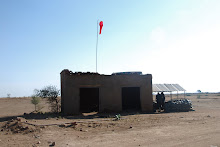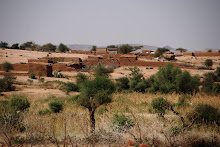A recent article in the New York Times claimed that the US Supreme Court’s influence on legal institutions around the world is waning – a result of the US’s departure from the path of multilateralism and universal human rights.
But even if the formal judicial influence of America is fading, our informal quasi-judicial concepts are spreading quickly and effectively.
Soon after ‘terr’rist’ became a household word in the United States, governments around the world dismissively labeled rebels, journalists, and human rights organizers as terrorists. And, when US courts decided that ‘foreign fighters’ are not entitled to habeas corpus, they made it much easier for other regimes to get off the rule-of-law hook with anyone who could feasibly be called a ‘foreign fighter.’
And now, so quickly, the lingo of the financial crises is spreading - Greed and toxicity can conveniently be blamed for everything. Instead of bucking up and calling the crisis what it is - regulatory weakness, mismanagement, political pressure, risky trading, etc - we can call it a “toxic spread.”
Now in Sudan, we start to see the International Criminal Court’s indictment of the president on genocide charges labeled as ‘toxic,’ and the result of Western ‘greed.’
This is part of what I find so scary about Govenor Palin’s debate lingo - Blaming vague, nebulous, and evil concepts for real problems legitimizes them. We might think the tendency of American political rhetoric to blame issues on ‘predators,’ ‘extremists,’ and ‘snobs’ could only be damaging to ourselves, but it goes much further.
Monday, October 13, 2008
Subscribe to:
Post Comments (Atom)













































No comments:
Post a Comment